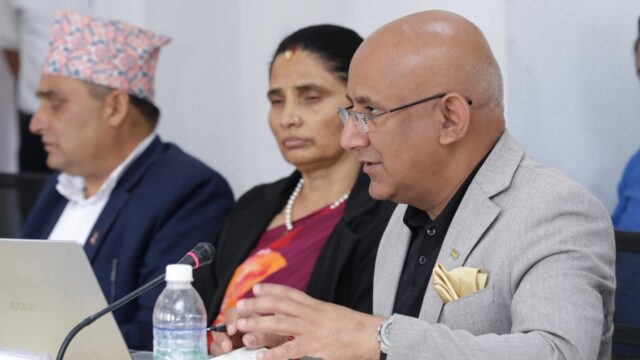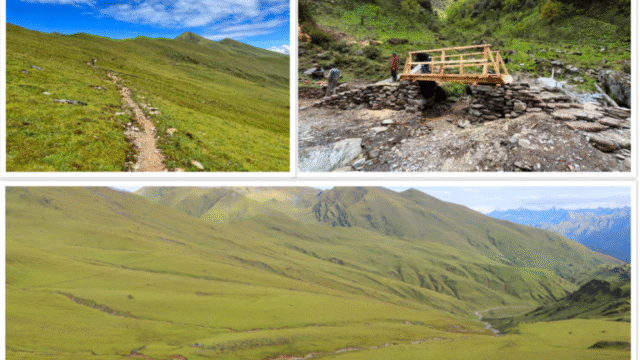A pilgrim traveling to Muktinath for religious purposes has died due to altitude sickness while en route to Mustang. According to District Police Office Mustang’s Information Officer and Police Inspector Bishal Adhikari, the deceased has been identified as 75-year-old Gopiram Gaha from Kaligandaki Rural Municipality–2, Syangja district.
Gaha was part of a group of 23 people traveling from Syangja to Muktinath for pilgrimage and to perform religious rituals at Kagbeni Dham. The group was following the route through Myagdi towards Mustang when the incident occurred. Upon reaching Marpha in Mustang, Gaha began experiencing severe health complications attributed to altitude sickness, commonly referred to as “lek lagne” in Nepali.
After showing signs of serious health deterioration, Gaha was immediately taken to the Province Hospital in Jomsom for treatment. However, despite medical efforts, he passed away today, officials confirmed.
Mustang, being situated at a high altitude, poses significant challenges for visitors not acclimatized to such conditions. Altitude sickness remains a persistent health risk for pilgrims, trekkers, and tourists who ascend quickly without sufficient adaptation time. Symptoms often include headache, nausea, dizziness, and in severe cases, can lead to life-threatening conditions such as pulmonary or cerebral edema.
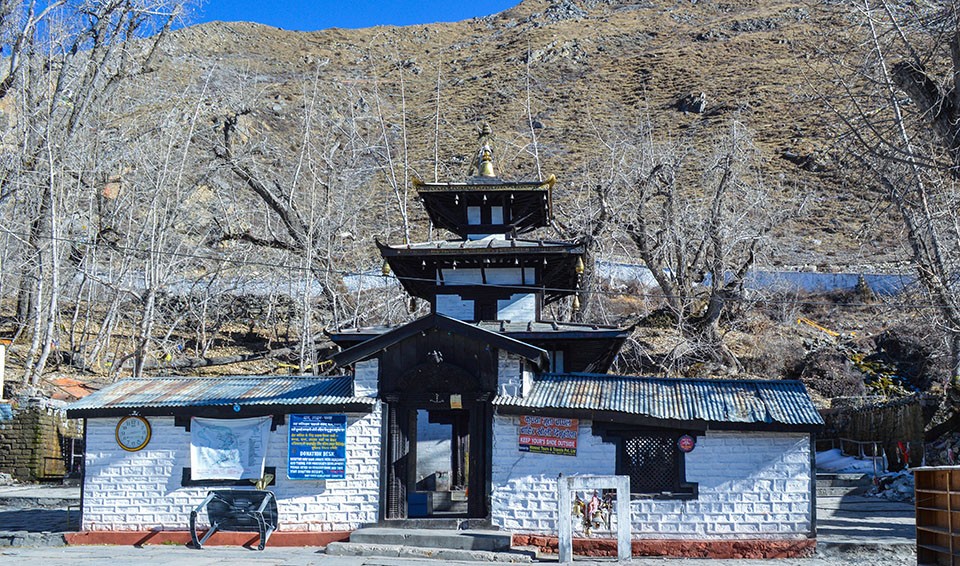
Authorities have consistently advised travelers to take precautionary measures, including gradual ascent, proper hydration, and acclimatization stops, to minimize the risk of altitude-related health issues. In many cases, immediate descent and medical treatment are necessary if symptoms worsen.
Muktinath Temple, located at an altitude of approximately 3,710 meters (12,172 feet) above sea level, is one of Nepal’s most revered pilgrimage sites for both Hindus and Buddhists. Every year, thousands of devotees, both domestic and international, visit the sacred temple to seek blessings and perform rituals. The site’s religious significance, combined with the breathtaking landscapes of the Mustang region, draws a large number of visitors, especially during favorable seasons.
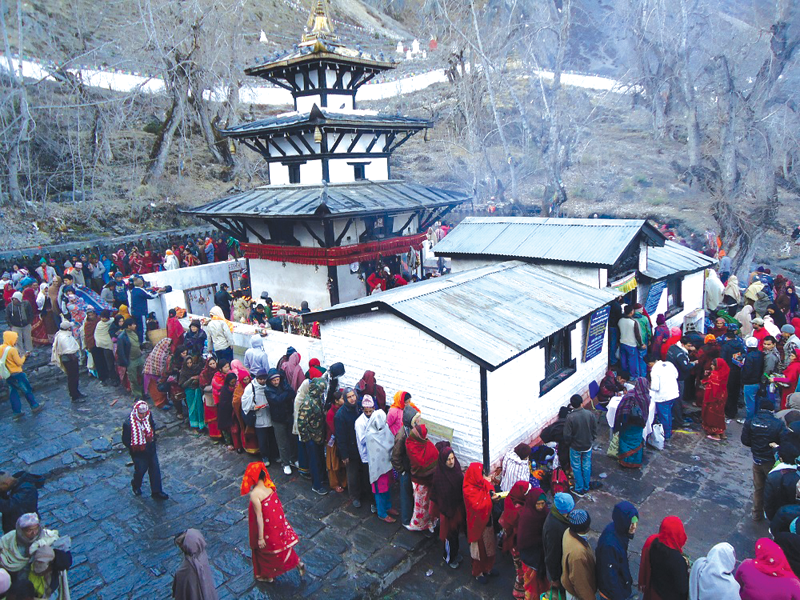
The death of a pilgrim underlines the need for greater awareness and preparedness among travelers planning to visit high-altitude destinations like Muktinath. Local authorities, tourism operators, and medical personnel in Mustang frequently conduct awareness campaigns, yet incidents continue to occur, often due to a lack of precautionary measures or underlying health conditions.
Following Gaha’s death, the rest of the group is reportedly safe, but local authorities are maintaining close communication with the team and advising them on health and safety precautions for continuing their journey or returning as necessary.
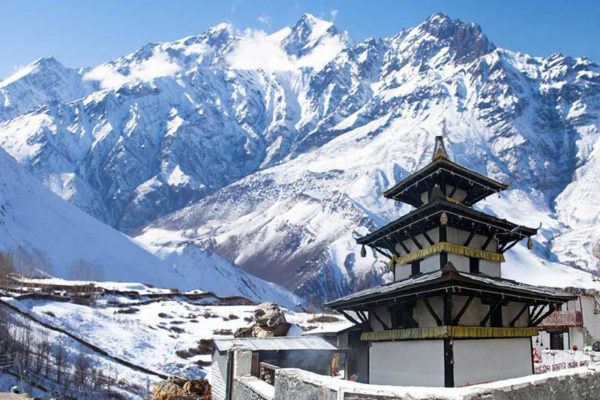
District Police Office Mustang has expressed condolences to the bereaved family and emphasized the importance of adhering to health safety guidelines while traveling to high-altitude areas.
Travel experts recommend that elderly individuals, those with pre-existing medical conditions, or first-time visitors to high elevations consult with healthcare providers before embarking on such journeys. Carrying necessary medications, traveling at a slow pace, and paying close attention to physical symptoms during travel can be life-saving steps.
Gaha’s death serves as a somber reminder of the unpredictable nature of high-altitude travel and the importance of prioritizing health over the itinerary when journeying to sacred yet challenging destinations like Muktinath.
Authorities have reiterated that visitors planning to travel to Mustang and similar high-altitude regions should take adequate precautions, seek medical advice if necessary, and allow sufficient time for acclimatization to ensure a safe pilgrimage.


